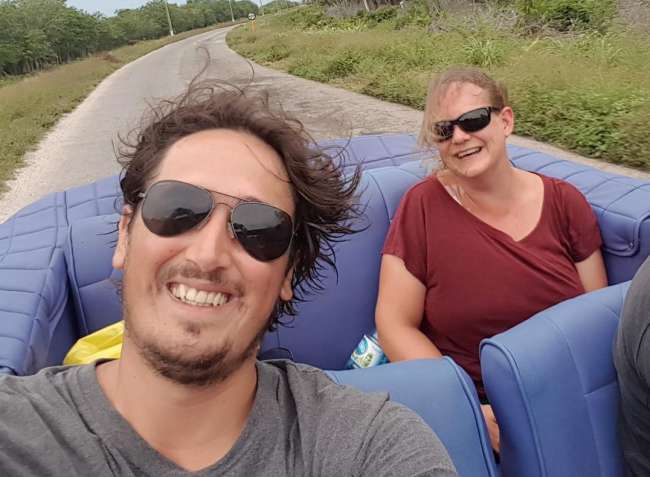
Wir reisen, also sind wir
vakantio.de/wirreisenalsosindwir
Brazil: Beautiful
Oñemoherakuãva: 10.01.2019
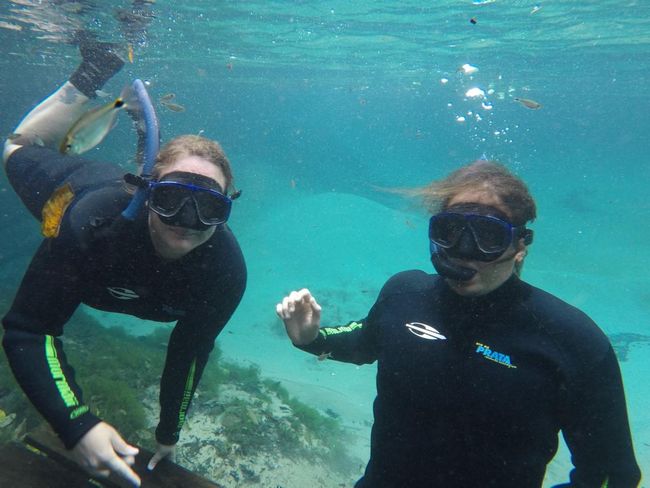
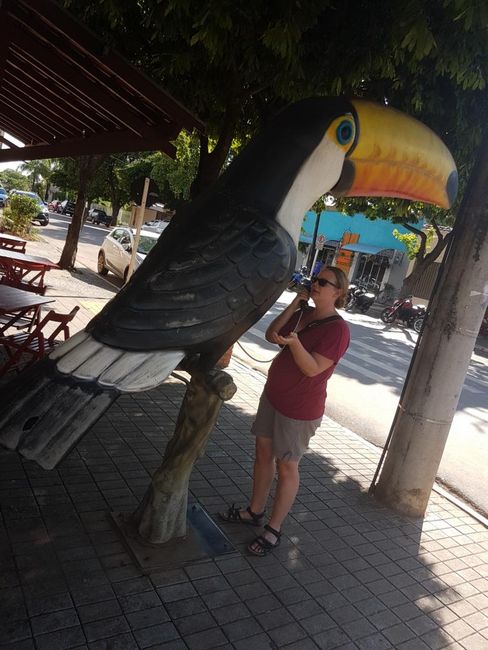
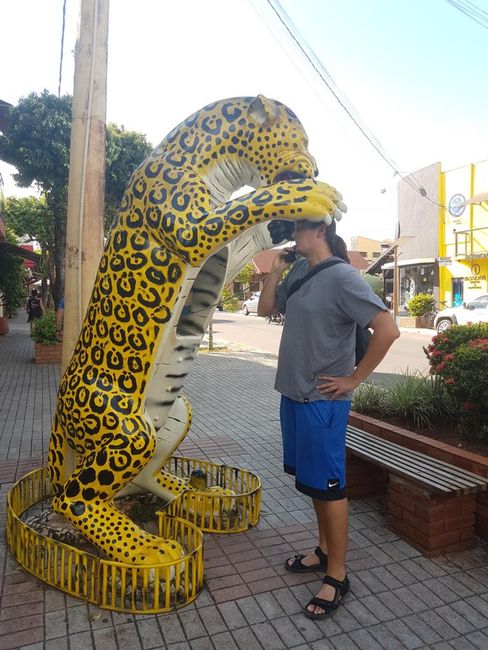
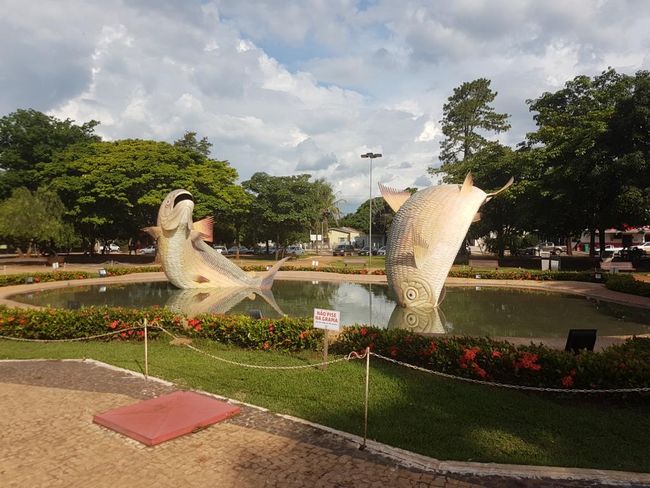
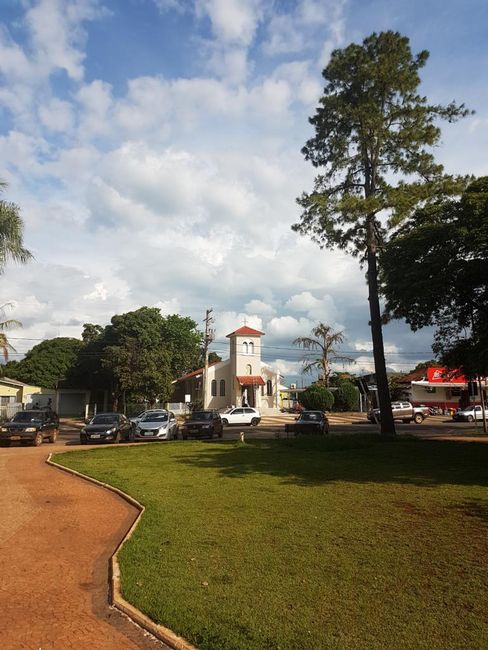
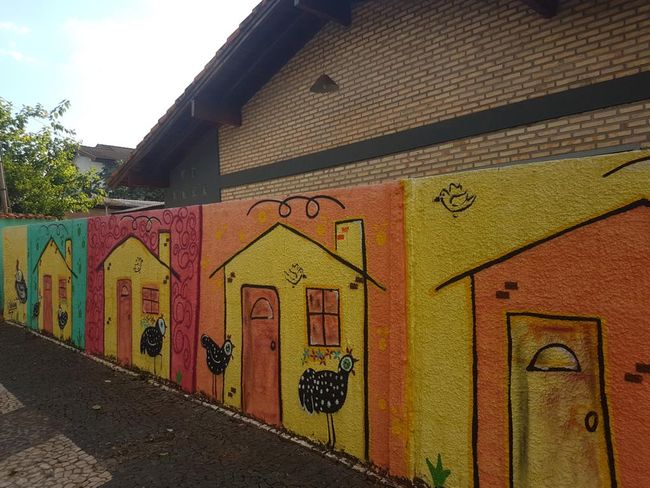
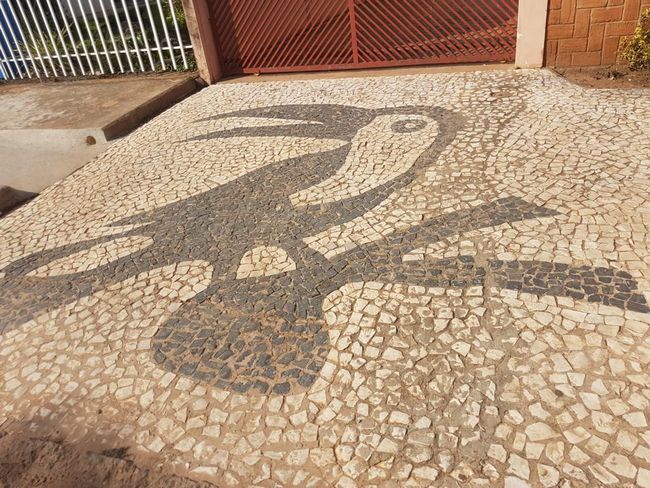
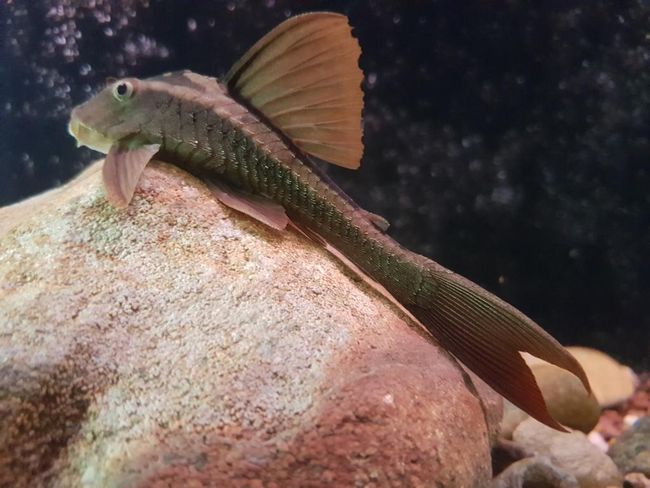
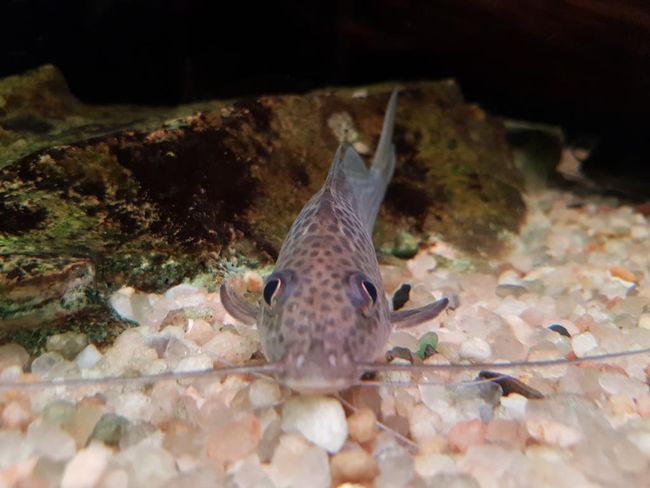
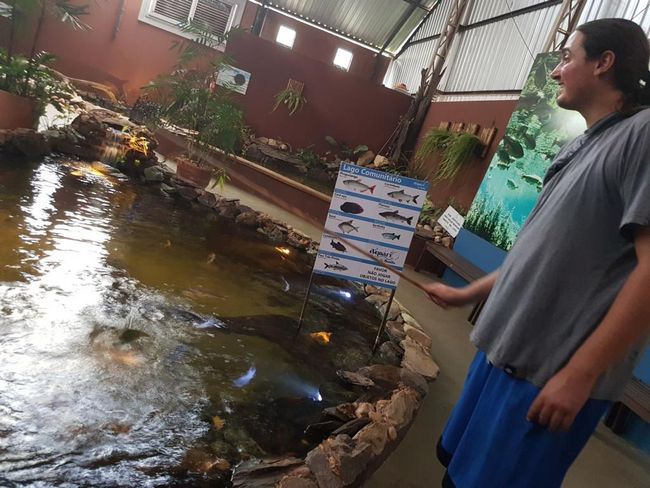
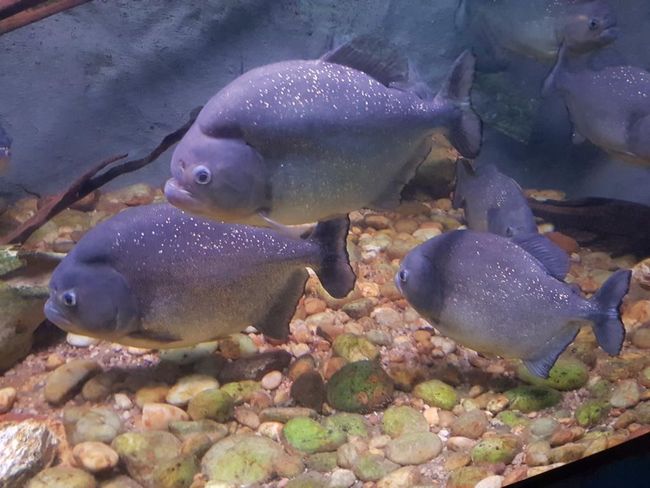
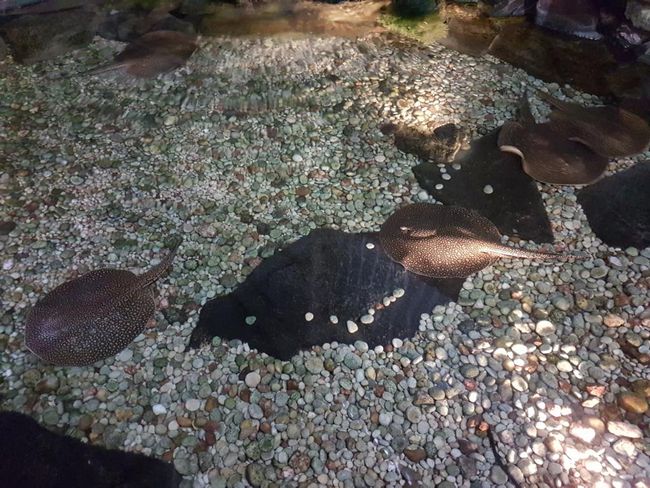
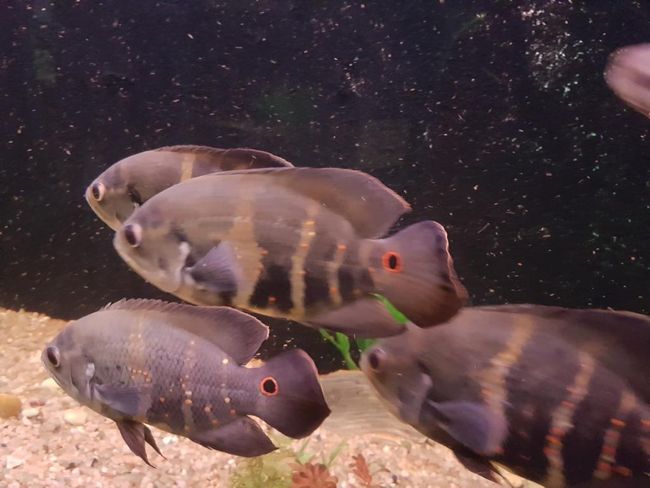
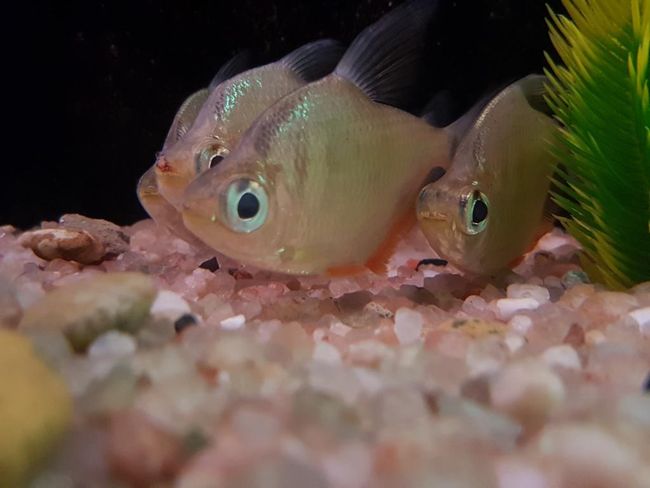
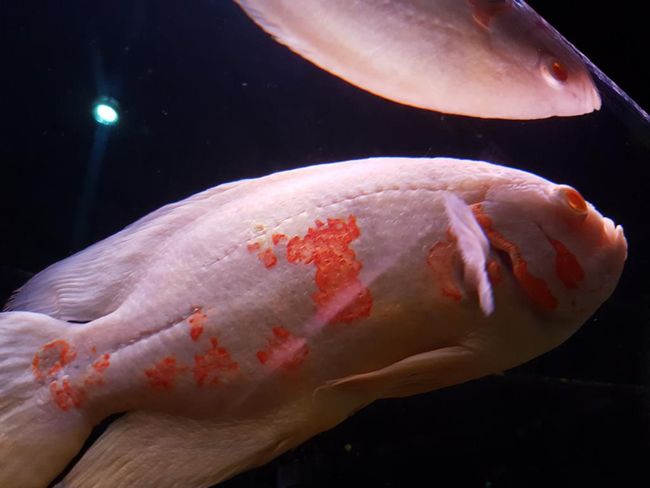
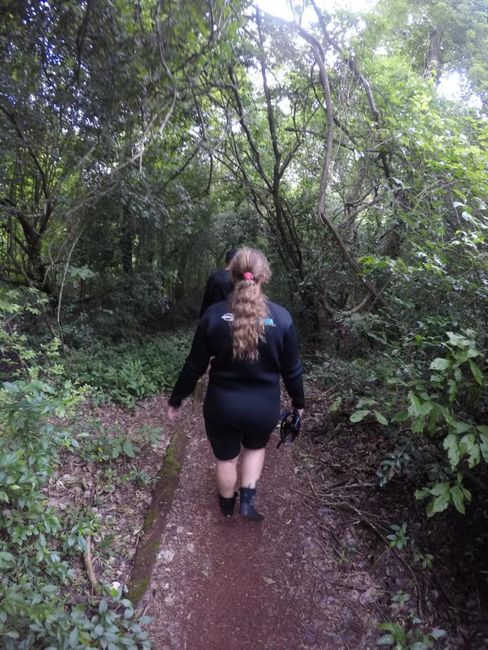
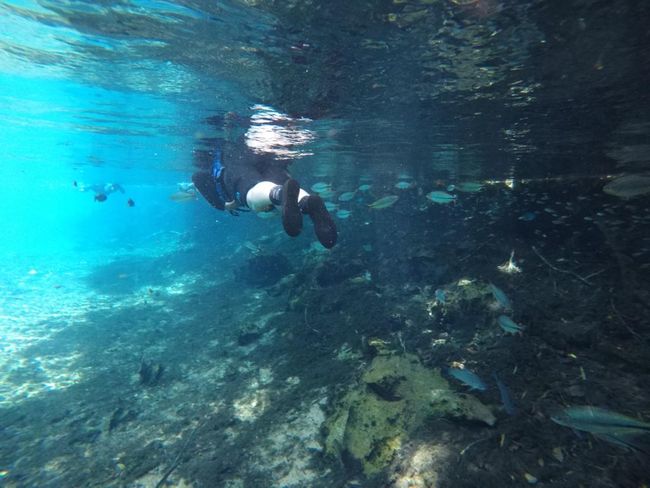
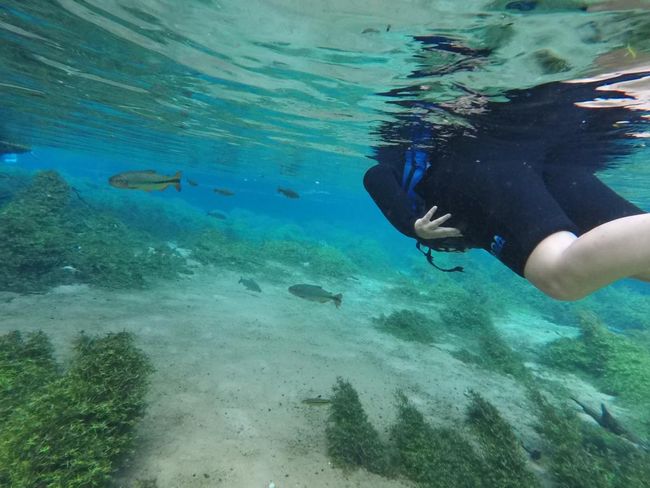
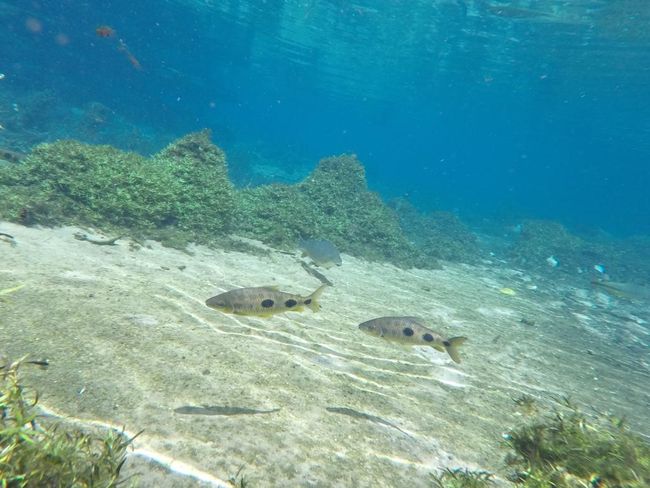
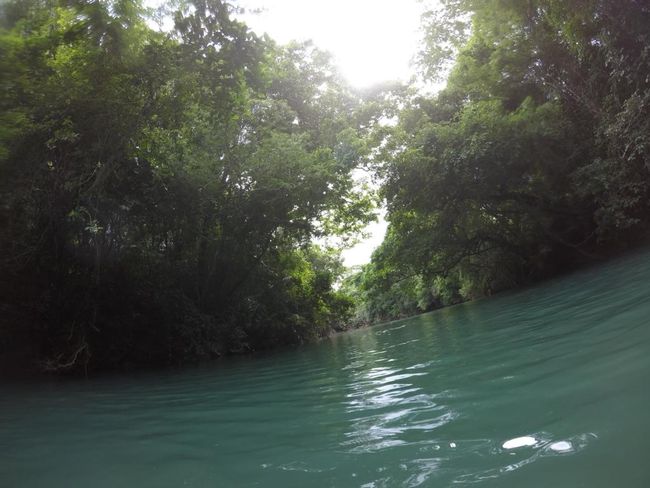
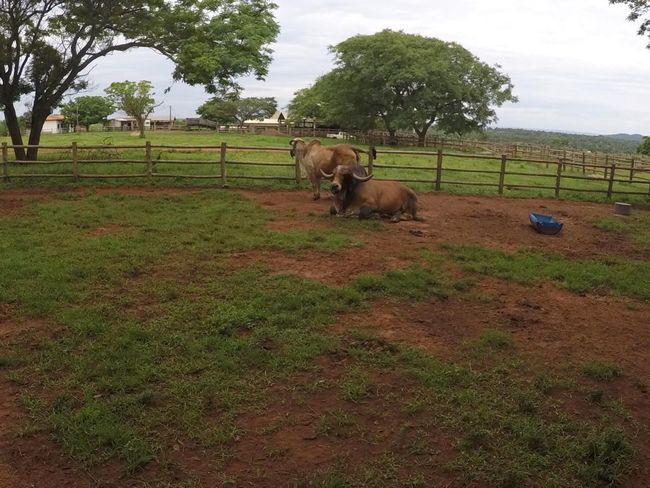
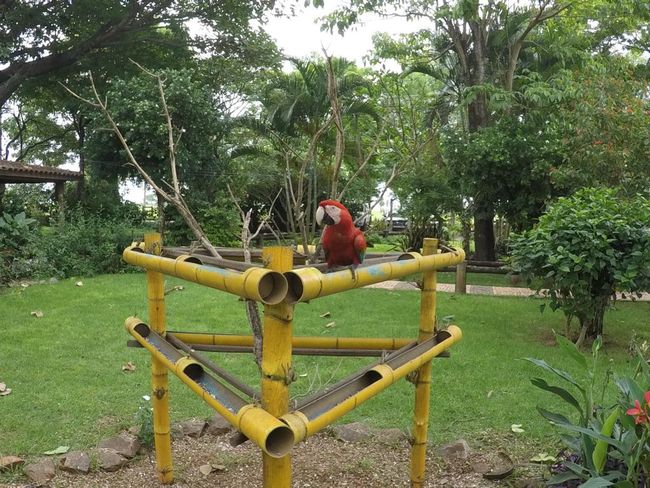
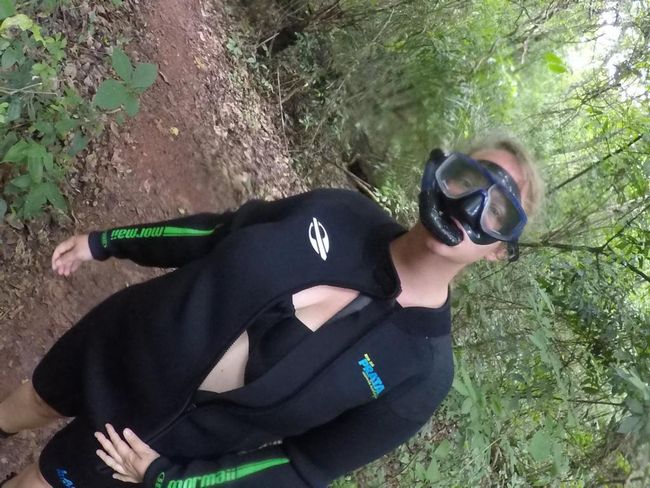
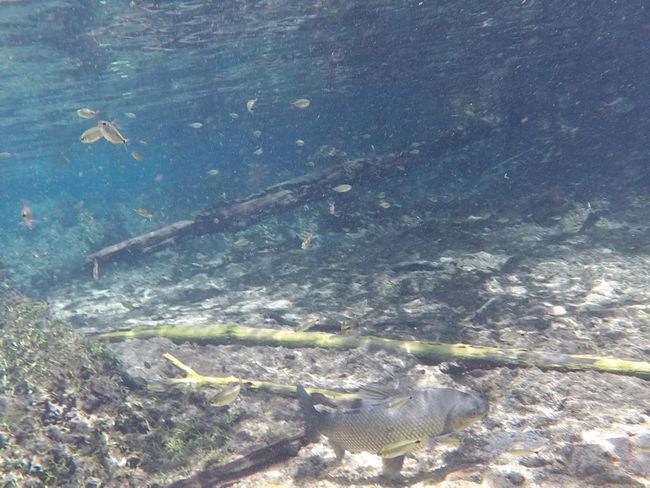
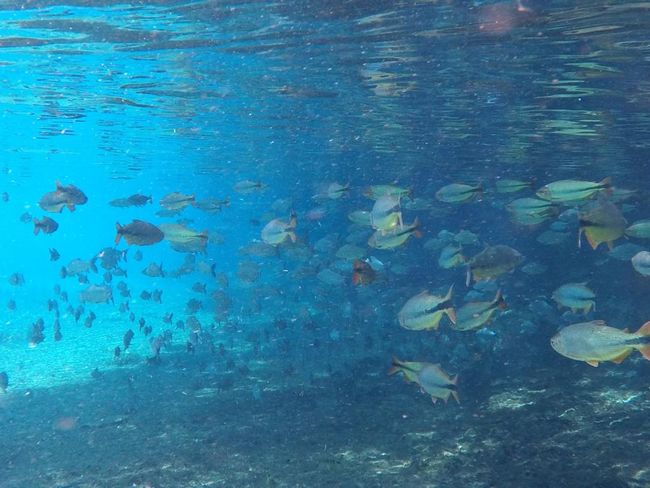
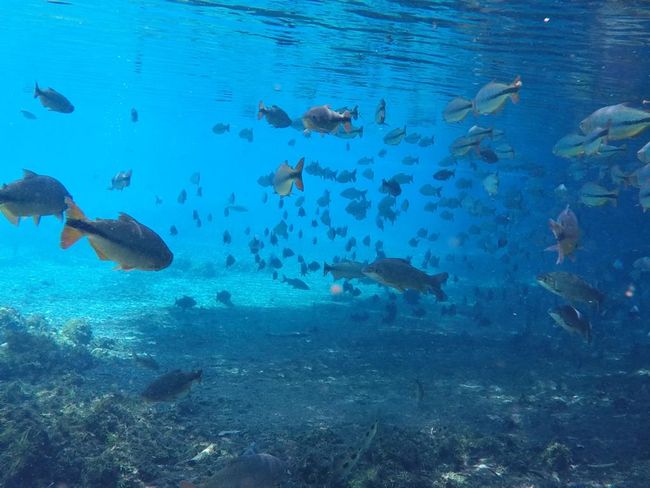
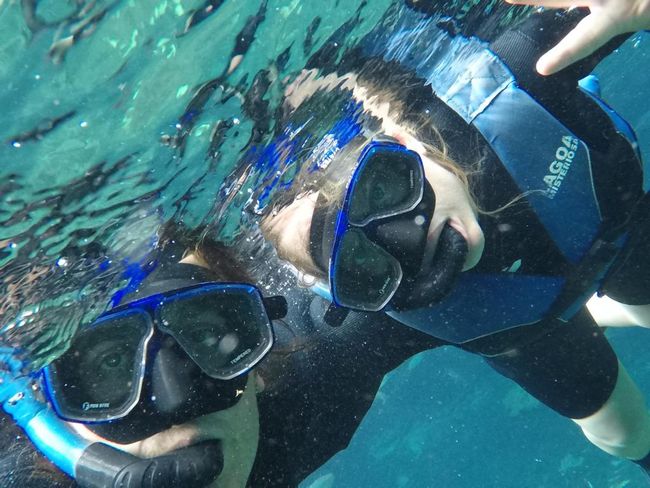
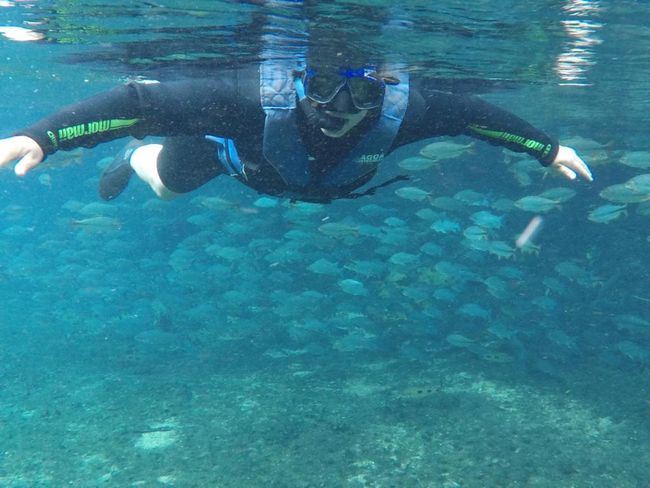
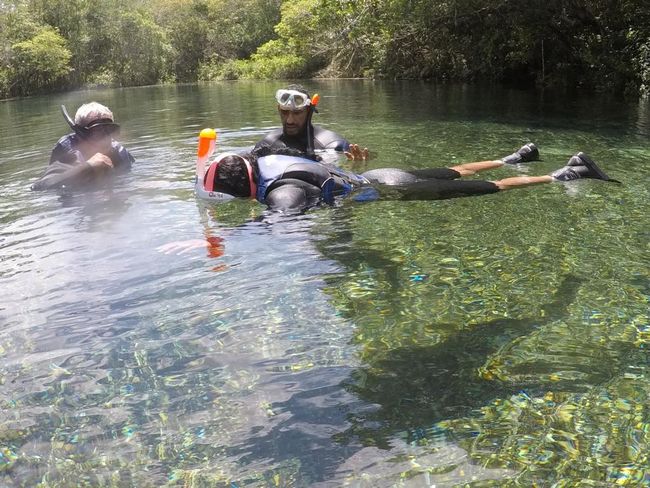
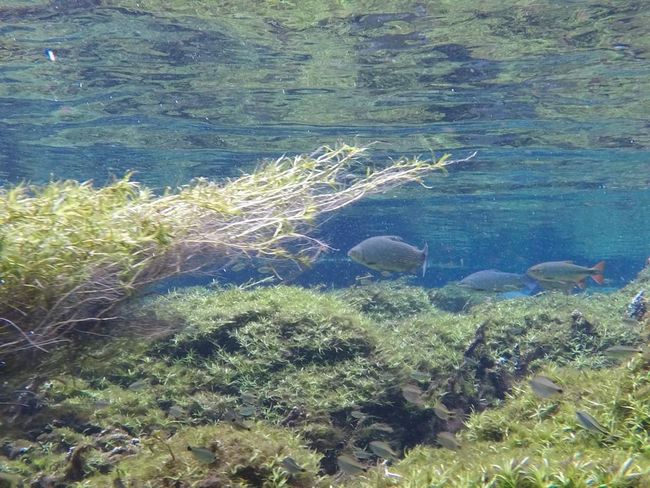
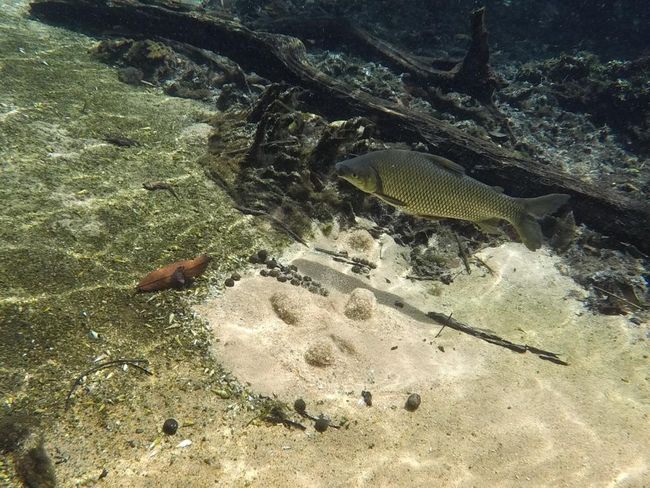
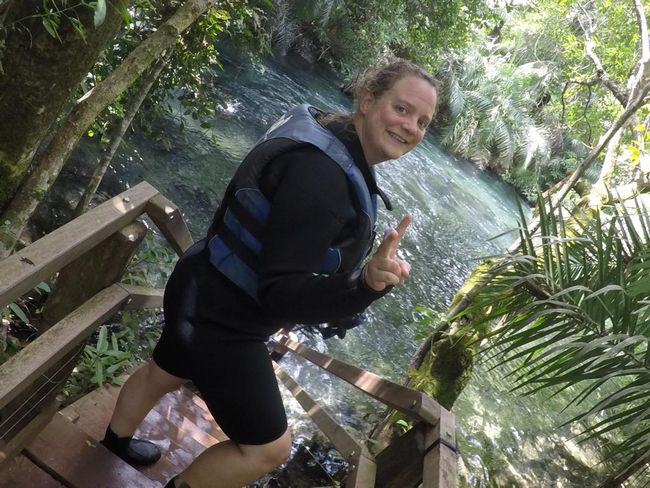
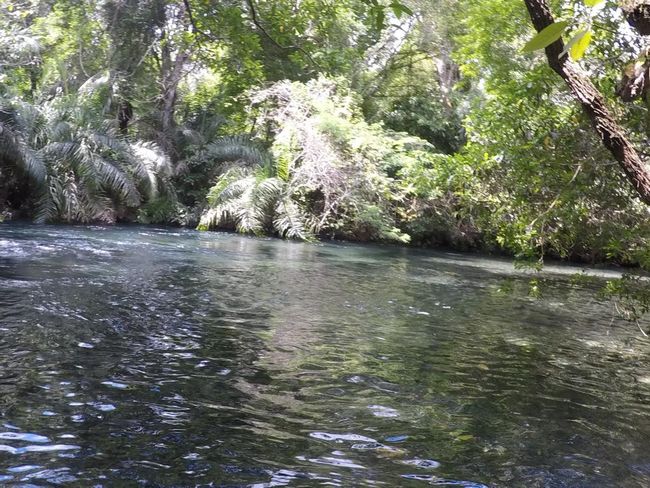
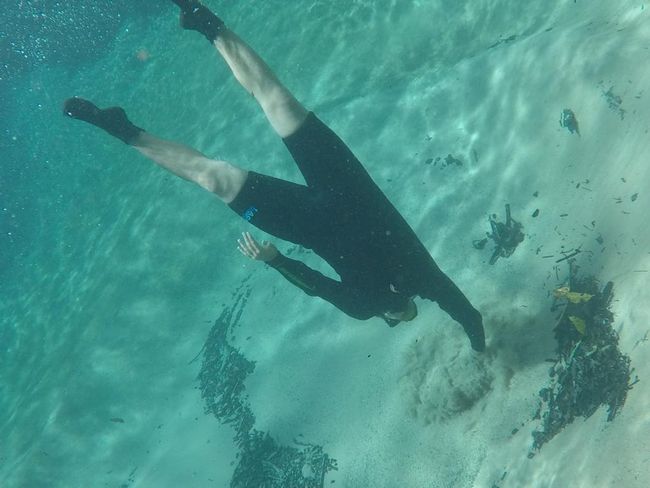
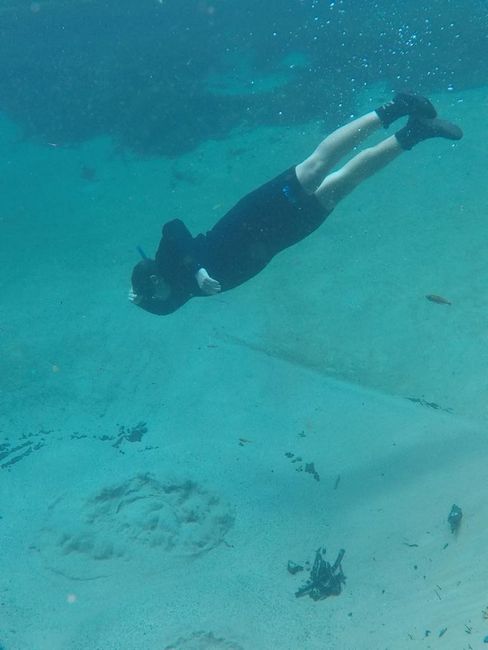
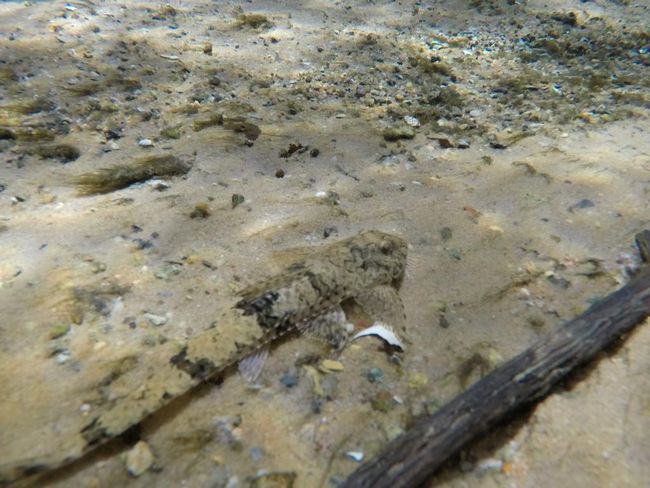
Ejesuscribi Boletín de Noticias-pe
The Pantanal Shuttle then took us from the Jungle Lodge to Bonito. Bonito was not actually on our to-do list, in fact, we hadn't even heard of it until a few days ago. An Austrian couple had recommended it to us in San Jose de Chiquitos. And all the guests at the lodge were either from there or going there. So we decided to not miss out on it.
Bonito is a place nestled in a water landscape and is considered a model of ecotourism in Brazil. The main attraction is the rivers with incredibly clear freshwater where you can see countless fish while snorkeling, as well as the cenotes and caves where you can also snorkel and even dive. In addition, there are various other activities such as hikes to waterfalls, etc. The tours offered are all standardized by the tourism office, with the number of participants, the program, and the prices all being fixed. Most of the tours are day trips, which include lunch. So it doesn't matter where you book the individual tours, whether at the hotel or at a tour agency, the program and prices are the same. And the prices are really high, in some cases almost exorbitant. In addition, you always have to pay for transportation separately if you don't have your own vehicle. But people still come, as you can see.
The town of Bonito itself doesn't have much to offer. Apart from a small park, the tourist street forms the center, where restaurants, hotels, shops, and tour agencies line up.
On the first rainy afternoon, we visited the local aquarium. It is a privately run facility, so it is rather small and manageable, but still quite interesting. A guide is included in the price and shows local fish and aquatic animals from the entire Pantanal. Of the 280 fish species in the Pantanal, 73 were represented here. There were some very special animals among them: for example, a fish that is considered the symbol of Bonito and can jump out of the water. You can even feed it in the aquarium, with food paste attached to the end of a long stick, while waiting for the fish to jump out of the water to grab the food. Of course, you can also play with them a little, which was quite fun. The Cara-açu fish had impressed me the most, as it can remember a person as its reference. The fish recognizes the voice of its "master". When it hears this voice, it immediately becomes attentive and even changes its color as a sign of well-being.
The next morning, our booked tour to Rio da Prata started. We were picked up at the hotel at 09:15 and taken to the place where the tour would start. But as soon as we arrived, we learned that we would only be able to start at 12:00, which was more than 2 hours later! Joy prevailed. And this was announced quite comfortably in Portuguese because, in fact, not a single human being in this whole place was able to speak another language, not even a little bit. No Spanish, no English, nothing at all. And that despite the fact that the activities of most of the employees there consisted of only 10 sentences a day, which seems quite possible to learn in another language.
At the lunch buffet, it was explicitly allowed to eat AFTER the tour, so this was not an alternative as a pastime (by the way, this information was also indicated in English).
In the garden, there were some hammocks and seating areas, so to speak, the waiting area. Fortunately, there were feeding stations for parrots on the premises, so we could pass the time with bird watching. A small group of red macaws flew through the area again and again, settling on the many trees or coming to the feeding stations. They are simply magnificent birds, I could watch them over and over again without ever getting bored.
When it was finally our turn, it turned out that our guide could only speak Portuguese as well. So we didn't get much information from the introduction. Moreover, our limited understanding of this language was enough to understand that he was making fun of us gringos, who couldn't even speak the language and therefore couldn't communicate at all. I should mention at this point that the day trip cost about 80 CHF per person, so it's not exactly a bargain. And if you can't expect a guide who speaks at least a few words of Spanish for that price, which is after all the official language of the entire continent, you should at least expect a guide who doesn't make fun of you. Apparently not.
So we were squeezed into our wetsuits, equipped with a mask and snorkel, and then driven to the starting point of the hike, which was the first part of the tour. So we walked a few hundred meters in the heat in wetsuits and snorkel masks along a path through the forest. Occasionally, there was a stop where the guide provided some information about plants or animals. Although theoretically I could understand a little bit of Portuguese with some concentration thanks to my knowledge of Spanish, at this point I was already so annoyed with the whole thing that I didn't listen at all.
Finally, we reached the water, more precisely a kind of practice pool, where we received a quick crash course in snorkeling. Interestingly, it was forbidden to kick with our legs, we were only allowed to make swimming movements with our arms, which was unusual. But due to the thick wetsuit and life jacket, we had so much buoyancy that we just had to lay in the water and let ourselves drift downstream.
During the crash course, it also turned out that one of the tour participants couldn't swim at all and was generally a little afraid of water. Great! But still, she absolutely wanted to go snorkeling, how? In fact, the lady had one panic attack after another, and we had to stay at this practice area for a long time and wait until she was finally ready to swim arm in arm with the guide, while he reassured her all the time. During this time, we were not allowed to swim around, we were immediately called back by our guide like little children. In this case, it was actually advantageous not to understand the language because we could simply pretend not to understand that we were not allowed to swim out of the stone circle while the guide was busy keeping the water-shy woman alive. At some point, the guide decided that the woman was now professional enough to start. And so we finally let ourselves float down the river at a leisurely pace. Halfway through, we had to get out again via a ladder and walk around a rapid before we could continue swimming.
The snorkeling here was really nice. The water is incredibly clear, you can see every leaf on the riverbed in HD quality. This is due to the high calcium content of the water. The heavy calcium causes all foreign bodies and impurities in the water to sink to the bottom. It was a really nice experience to snorkel here in the river, especially the colors impressed me a lot when the sun shone from above into the water. It was also fun to simply let ourselves drift down the river. However, I was a little disappointed with the abundance of fish. Based on various descriptions and stories from other tourists, I had expected to see more fish.
In a slightly deeper spot in a kind of basin, we were also allowed to jump into the water from a platform and take underwater photos. Or rather, the guide took them, but here too, he showed little attention to me and Jörg, actually only when we did something wrong, and when it came to scolding us in Portuguese. I really felt like a kindergartener.
After swimming along the Rio Prata, we reached a confluence where it merges with another river. However, due to the recent rains, the water here was turbid, so we couldn't see anything anymore. That was really a pity because the huge pacu fish live in this area, but unfortunately, we couldn't see them (except in the aquarium).
A little further on, we arrived at the exit where a car was already waiting to take us back to the ranch. After changing clothes, we were finally allowed to help ourselves to the lunch buffet, and it was high time for it, as we were really hungry by now. The food was so-so.
Afterwards, we were driven back to the hotel.
Actually, we were interested in 2 more excursions. However, one attraction was closed for "maintenance" and the other was fully booked. And since, as already mentioned, this is a pretty expensive and apparently quite cumbersome pleasure, we decided to leave it at that and head towards the Paraguayan border.
And what is the conclusion from all this? Bonito has a lot to offer in terms of spectacular nature, and all the offers are certainly very nice and special experiences. I actually enjoyed the snorkeling very much. From my point of view, however, it could have easily been a half-day trip, as the program simply offers too little for a whole day, considering that we only snorkeled for about 1.5 hours. It is probably also about distributing the influx of visitors to various attractions. For example, if you spend 6 days on vacation in Bonito, you can only participate in 6 of the offered tours because they all take a whole day. So you have to decide on something, and not all people are at all places.
What really surprised me was that nobody in the whole town speaks foreign languages. And that despite the fact that there are so many tourists here, from other countries in Latin America, as well as from Europe and the USA. Not only during the excursion but also in the hotel, restaurant, tour agency, or shop, you were lucky if you met someone who spoke at least a few words of Spanish.
And as I said, what bothered me the most was the feeling of absolute patronization, as if I were still a school child. Well, it may well be that it would have been different with a different guide.
Anyway, I'm glad we came to Bonito and saw it, but I'm also glad we moved on soon and just participated in one of the attractions. That was enough for me.
Ejesuscribi Boletín de Noticias-pe
Mbohovái
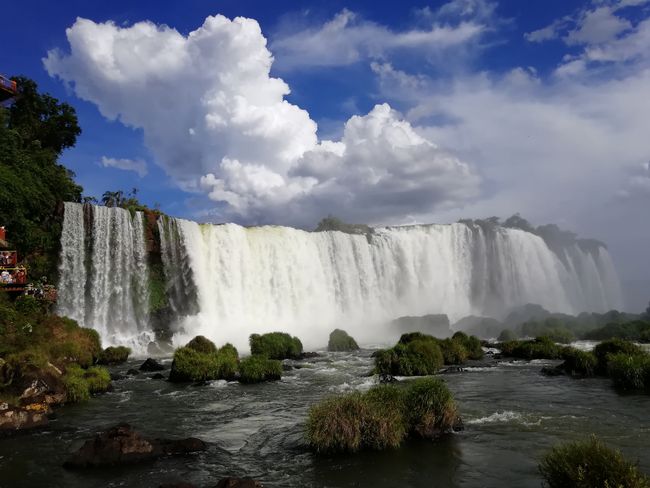
Marandu jeguata rehegua Brasil
